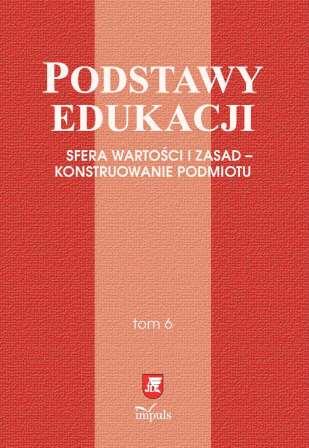Abstract
The main subject of author’s consideration is the question about the valuable model of education in the world of Web 2.0. The previous model of the education loses meaning in the times of unlimited access to knowledge, but redesigning it cannot be limited to giving up the epoch of chalk and moving on to the epoch of new information and communication technologies (ICT). So, the issue concerns change of not only the tools used in school, but it is about a profound change in the philosophy of education. The change must involve the kind of competencies acquired by pupils, the canon of the general education, the style of teacher’s work with the pupil, the role of the teacher. Future education will comprise among others: learning online (e-learning) and blended learning, open access to information and free software, open free courses on the Internet, networks of personalized learning.
References
Bonk, C.J. (2009). The World Is Open. How Web Technology Is Revolutionizing Education. San Francisco.
Carr, N. (2011). The Shallows: What the Internet is Doing to Our Brains. New York.
Chomsky, N. (2012). The Purpose of Education. Wykład wygłoszony 1.02.2012 r. na konferencji „Learning without Frontiers” w Londynie.
Christensen, C., Johnson, C.W., Horn, M.B. (2008). Disrupting Class: How Disruptive Innovation Will Change the Way the World Learns. New York.
European Foundation for the Improvement of Living and Working Conditions. (2012). Raport. OECD.
Gajda, J. (2002). Media w edukacji. Warszawa.
Gawrysiak, M. (2009). Homo zappiens i homo sapiens. O technicznym, ludycznym i intelektualnym dostępie do mediów. W: K. Wenta, E. Perzycka (red.), Edukacja informacyjna. Neomedia w społeczeństwie wiedzy. Szczecin.
Gawrysiak, M. (2010). Nie dostarczanie, lecz pobieranie informacji. Jak komputery zmieniają pracę i szkołę? Szkoła – Zawód – Praca, 1.
Gerver, R. (2010). Creating Tomorrow’s Schools Today. Education – Our Children – Their Futures. Stafford.
Krzysztofek, K. (2007). WEBski Świat: mądrość tłumów sieciowych czy zbiorowe nieuctwo? Wstęp. W: A. Keen (red.), Kult amatora. Jak Internet niszczy kulturę. M. Bernatowicz, K. Topolska-Ghariani (tłum.). Warszawa.
Levine, A.E. (2009). The School of One: The School of Tomorrow. New York.
Life in the 21st Century Workforce: A National Perspective. (2011). Phoenix.
Światowe tendencje w zatrudnieniu młodzieży. (2013). Raport Międzynarodowej Organizacji Pracy. Genewa.
Richardson, W. (2012). Why School: How Education Must Change When Learning and Information Are Everywhere. New York.
Robinson, K. (2010). Oblicza umysłu. Ucząc się kreatywności. A. Baj (tłum.). Kraków.
Small, G., Vorgan, G. (2008). iBrain: Surviving the Technological Alteration of the Modern Mind. New York.
Stasiak, P. (2010). Zgooglowany umysł. Dlaczego Internet zmienia nasz mózg? Ja, My, Oni, 13.
Tapscott, D. (2010). Cyfrowa dorosłość. Jak pokolenie sieci zmienia nasz świat. P. Cypryański (tłum.). Warszawa.
Thompson, E. (2008). Postmodernizm, pamięć, logocentryzm. W: H. Gosk, B. Karwowska (red.), (Nie)obecność. Pominięcia i przemilczenia w narracjach XX wieku. Warszawa.
Ulmer, G. (1989). Teletheory: Grammatology in the Age of Video. New York – London.
Wiener, D. (2009). Jak przegrzewa się mózg, czyli Homo sapiens na zakręcie. Gazeta Wyborcza, 16.08, http://wyborcza.pl/1,76842,6925549,Jak_przegrzewa_sie_mozg__czyli_Homo_sapiens_na_zakrecie.html (1.06.2013).
Wilson, K.G., Daviss, B. (1994). Redesigning Education. New York. YOUmedia – Reimagining, Learning, Literacies and Libraries, http://ccsr. uchicago.edu/publications/youmedia-chicago-reimagining-learning-literacies-and-libraries-snapshot-year-1 (1.06.2013).
I am aware that the journal is published under the Creative Commons Attribution License (https://creativecommons.org/licenses/by/4.0/legalcode).
By submitting an article, I agree to make it available under this license.
